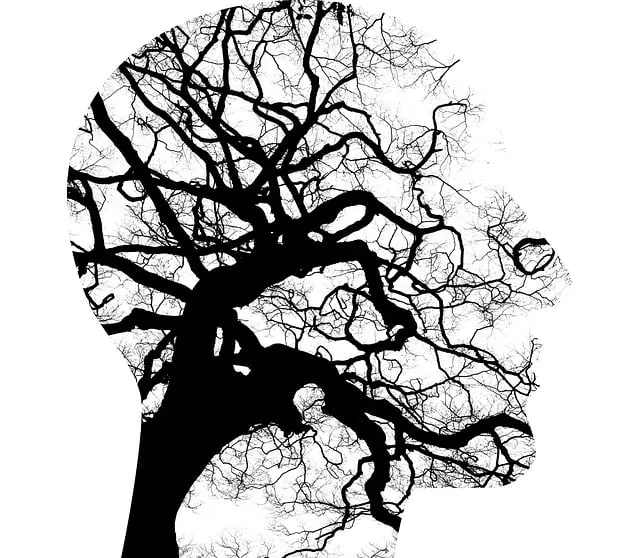Kaiser Permanente's training programs in Aurora prioritize emotion regulation as a key component of patient care, addressing cultural competency and stigma reduction related to trauma and mental illness. These evidence-based programs teach effective emotion management techniques that enhance emotional health alongside physical well-being, creating an inclusive healthcare environment. Continuous learning leads to improved mental wellness, decision-making skills, and social interactions, reducing the risk of long-term mental health issues.
Emotion regulation techniques are essential tools for navigating life’s challenges. This article explores the significant role of Kaiser Permanente training programs in Aurora, offering insights into how these initiatives empower individuals to manage their emotions effectively. We delve into practical strategies for daily use and long-term mental well-being, highlighting the impact on participants’ lives. By understanding these techniques, you can harness your emotional intelligence and embrace a more balanced and resilient mindset, just like those involved in Kaiser Permanente’s Aurora training programs.
- Understanding Emotion Regulation: The Role of Kaiser Permanente Training Programs in Aurora
- Teaching Effective Strategies: Techniques for Daily Practice and Long-Term Management
- Impact and Application: Enhancing Mental Well-being through Continuous Learning
Understanding Emotion Regulation: The Role of Kaiser Permanente Training Programs in Aurora

Emotion regulation is a vital skill for individuals to navigate life’s challenges and maintain overall well-being. It involves recognizing, understanding, and managing one’s emotions effectively. In the context of healthcare, especially within Kaiser Permanente training programs in Aurora, emotion regulation techniques are not just valuable but essential. These programs play a crucial role in equipping healthcare providers with the necessary tools to support patients’ emotional health alongside their physical well-being.
The Kaiser Permanente training programs in Aurora have been instrumental in promoting cultural competency among healthcare providers. By addressing issues like trauma and mental illness stigma reduction efforts, these initiatives ensure that medical professionals can offer empathetic care tailored to diverse patient needs. Through comprehensive training, healthcare providers learn to recognize emotional cues, provide Trauma Support Services, and facilitate conversations about mental health, thereby fostering a more inclusive and responsive healthcare environment.
Teaching Effective Strategies: Techniques for Daily Practice and Long-Term Management

Teaching effective emotion regulation techniques is a cornerstone of comprehensive mental health education. Programs like those offered by Kaiser Permanente in Aurora focus on empowering individuals with practical tools for daily practice and long-term management of their emotional well-being. These strategies are designed to enhance resilience, foster healthy coping mechanisms, and improve overall mood management, making them invaluable resources for individuals navigating various life challenges.
The Mental Health Education Programs Design at Kaiser Permanente training incorporates evidence-based methods tailored to diverse populations. By integrating trauma support services into these programs, participants gain insights into managing intense emotions resulting from past traumatic experiences. Such an approach not only facilitates personal growth but also promotes effective long-term emotional regulation, enabling individuals to lead more fulfilling lives.
Impact and Application: Enhancing Mental Well-being through Continuous Learning

The impact of emotion regulation techniques extends far beyond momentary stress relief. Continuous learning and practice through programs like Kaiser Permanente training in Aurora have shown significant improvements in mental well-being. These skills not only help individuals navigate their emotions more effectively but also foster better social interactions, a key aspect emphasized in Social Skills Training. By integrating emotional healing processes into daily life, participants in these programs can enhance their resilience, reducing the risk of long-term mental health issues.
The application of such techniques is versatile, catering to diverse populations. Mental Wellness Coaching Programs Development, for instance, has been tailored to support both adolescents and adults, demonstrating the adaptability of these strategies. Through dedicated training, individuals from all walks of life can develop a deeper understanding of their emotions, leading to improved decision-making, enhanced self-awareness, and overall better management of daily stressors. This continuous learning approach ensures that people equipped with these skills can not only maintain but also continually improve their mental wellness.
The Kaiser Permanente training programs in Aurora have played a pivotal role in understanding and teaching emotion regulation techniques. By equipping individuals with effective strategies, these programs facilitate daily practice and long-term management of emotions, ultimately enhancing mental well-being. As demonstrated, continuous learning through such initiatives can profoundly impact individuals’ ability to navigate life’s challenges, making them essential resources in the community.






